#Julian Murch
Photo


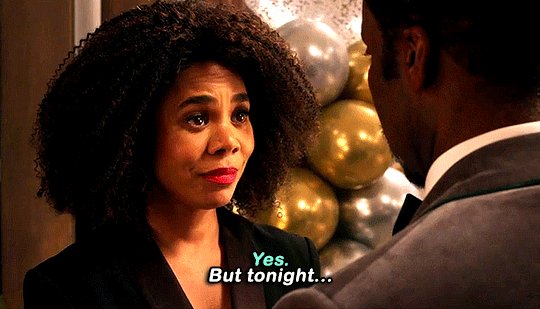
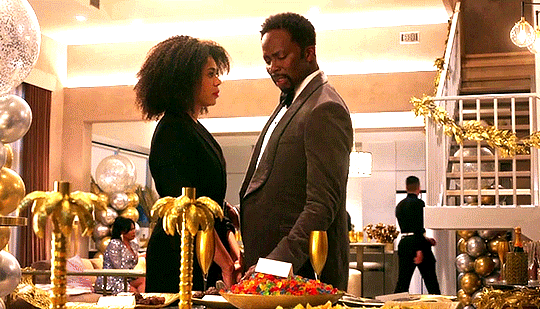
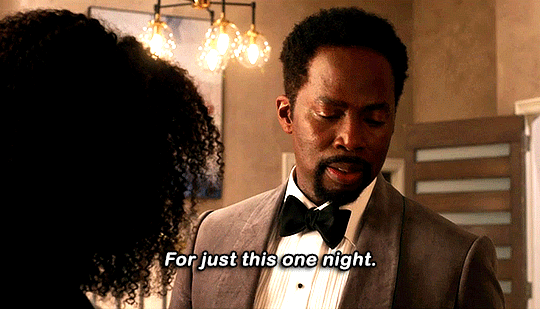

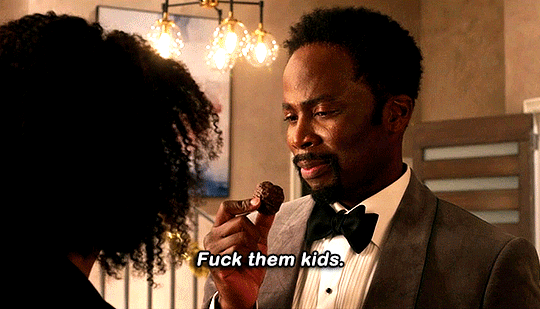
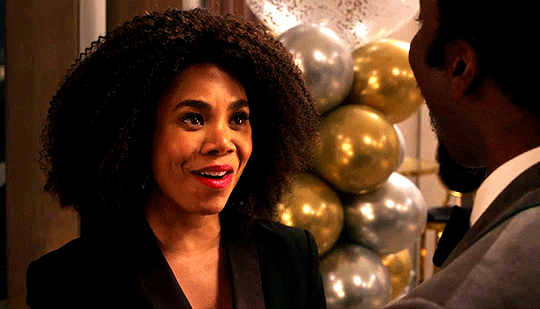
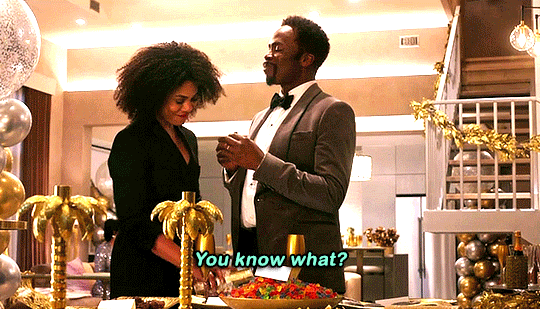
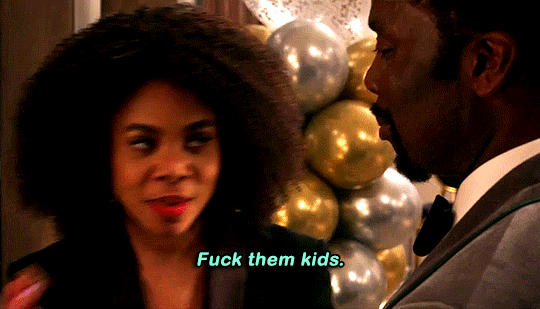
Harold Perrineau and Regina Hall in
THE BEST MAN: THE FINAL CHAPTERS || 1.05 “The Party”
Bonus:
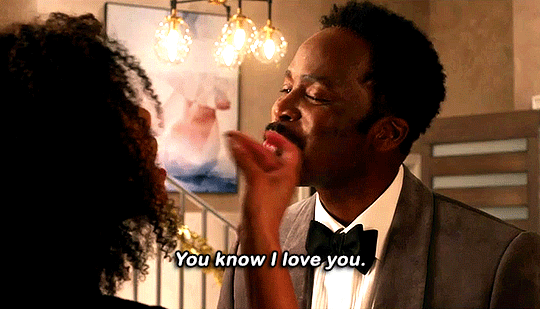
#candace x murch#the best man: the final chapters#the best man#tvedit#the best man final chapters#julian murchison#candace sparks#harold perrineau#regina hall#mygraphics#the best man spoilers#the best man the final chapters spoilers#gif
171 notes
·
View notes
Photo

Gene Hackman in The Conversation (Francis Ford Coppola, 1974)
Cast: Gene Hackman, John Cazale, Allen Garfield, Frederic Forrest, Cindy Williams, Michael Higgins, Elizabeth MacRae, Teri Garr, Harrison Ford. Screenplay: Francis Ford Coppola. Cinematography: Bill Butler. Production design: Dean Tavoularis. Film editing: Richard Chew. Music: David Shire.
The technology used in it may have dated, but The Conversation seems more relevant than ever. When it was made, the film was very much of the moment: the Watergate moment, which was long before email and cell phones. Julian Assange was only 3 years old. What has kept Coppola's film alive is that he had the good sense to make it a thriller about the consequences of knowledge. The real victim of Harry Caul's snooping is Harry Caul himself, the professional whose delight in what he can do with his microphones and tape recorders begins to fade when he realizes that technology is not an end in itself. It is one of the great Gene Hackman performances from a career crowded with great and varied performances. Ironically, the film that The Conversation most reminds me of today is The Lives of Others, Florian Henckel von Donnersmarck's 2006 film about eavesdropping by the Stasi in East Germany, which was praised by conservatives like John Podhoretz and William F. Buckley and called one of "the best conservative movies of the last 25 years" by the National Review for its account of surveillance by a communist regime. But Harry Caul is a devout Roman Catholic and an entrepreneur, making his living with the same technology and the same techniques as the Stasi spy of Donnersmarck's film -- capitalism alive and well. The film is something of a technological marvel itself: The great sound designer and editor Walter Murch was responsible for completing it after Coppola was called away to work on The Godfather, Part II, and the texture of the film depends heavily on the way Murch was able to manipulate the complexities of sound that form the key scenes, especially the opening sequence in which Caul is conducting his surveillance of a couple in San Francisco's crowded and busy Union Square. It's true that Murch cheats a little at the ending, when the line, "He'd kill us if he got the chance," is repeated. Caul had extracted it from a distorted recording, and took it to mean that the couple (Cindy Williams and Frederic Forrest) were in danger from the man who commissioned the surveillance. But at the end, the line is heard again as "He'd kill us if he got the chance," an emphasis that reveals to Caul, too late, that they are the killers, not the victims. It's unfortunate that so much depends on the discrepancy between the way we originally hear the line and the later delivery of it. Still, I don't think it's a fatal flaw in a vital and gripping movie.
3 notes
·
View notes
Text
Julian steps off the train, looking around as he takes in Inkopolis Plaza. It’s a lot more… shiny, than Splatsville. Tinier too. He's used to the bit of trash on the ground (that he and Lil Buddy have definitely NOT occasionally tried to eat... look, Lil Buddy likes digging through the trash to find leftover food, Julian just likes munching on things that aren't food to feel the textures...) and not the cleanliness of this city...
But hey, there was a reason Splatsville was called the city of chaos and Inkopolis wasn't. Lil Buddy sat in his designated spot in Julian's backpack, since there was a Grizzco building here as well...

"...Very clean and shiny... Different from Splatsville..."
Lil Buddy says something to him, Julian immediately making a face.
"No, no going to talk to people... Don't know anyone besides 1 and 2..."
He looks around, trying to familiarize himself with the city. He debates on heading to the back alley to talk to the urchin back there, he's talked with Murch a couple times but never for anything serious. Though, before he can, head over, he glances up at the Great Zapfish hanging out around Inkopolis Tower, eyes widening slightly.
He remembers seeing the Tower lit up by fireworks in the sky, the Great Zapfish smiling down at everyone in the hub. There's a few Inkfish surrounding him, he's holding a taller girl's hand and she's saying something to him and smiling, are they celebrating something? The New Year, maybe? Or a possible Splatfest? He's not sure...
Before he can remember more, he hears Lil Buddy calling out to him, pulling him out of his thoughts.

"Ah—"
Lil Buddy is sitting on his shoulder now, just staring at him. He may have been staring a bit too long and just being silent... He gently moves the Small Fry back to his spot in the backpack, shaking his head.

"...mmm..."
#in chara: julian#Julian V: Default#((hes got some vague baby memories. hes not sure what exactly he's seeing but... he's seeing it))
2 notes
·
View notes
Text
List of books read in 2019
Another year is almost over, and here’s the list of all the books I read. 119 books. 31,512 pages.
David Adam- The Man Who Couldn’t Stop: OCD and The True Story of a Life Lost in Thought
Kurt Anderson- Fantasyland: How America Went Haywire
Julian Barnes- The Only Story
Rob Bell- What Is The Bible?
Roberto Bolano- The Spirit of Science Fiction
Charles Brandt- I Heard You Paint Houses
William S Burroughs, Allen Ginsberg- Don’t Hide The Madness
Ernest Callenbach- Ecotopia
Stephen Chbosky- Imaginary Friend
Leonard Cohen- The Favorite Game
Phil Collins- Not Dead Yet
Francis Ford Coppola- Live Cinema and It’s Techniques
JM Coetzee- The Schooldays of Jesus
His Holiness The Dalai Lama- An Appeal To The World
Stephanie Danler- Sweetbitter
Michelle Dean- Sharp: The Women Who Made an Art of Having an Opinion
Anthony DeCurtis- Lou Reed: A Life
Lean Dieterich- Vanishing Twins: A Marriage
Nick Drnaso- Sabrina
Bret Easton Ellis- White
Dave Eggers- The Parade
Bart D Ehrman- The Triumph of Christianity
Nathan Englander- Kaddish.com
Mark Epstein- Psychotherapy Without The Self: A Buddhist Perspective
Mark Fainaru-Wada, Steve Fainaru- League of Denial: The NFL, Concussions, and the Battle for the Truth
Laurence Ferlinghetti- Little Boy
Pope Francis- The Name of God is Mercy
Pope Francis- Our Father
Mary Gordon- On Thomas Merton
Andrew Grant Jackson- 1965: The Most Revolutionary Year in Music
Allen Ginsberg- Journals: Early Fifties Early Sixties
Laurence Grobel- Al Pacino in Conversation with Laurence Grobel
John Green- Turtles All The Way Down
Edward L. Greenstein- Job: A New Translation
Rita M Gross- Buddhism Beyond Gender
Thich Nhat Hanh- Living Buddha, Living Christ
Joy Harjo- An American Sunrise
Jason Heller- Strange Stars: David Bowie, Pop Music, and the Decade Sci-Fi Exploded
Don Hertzfeldt- The End of The World
Nathan Hill- The Nix
John Hodgman- Medallion Status
Jessica Hopper- Night Moves
Elton John- Me
Han Kang- Human Acts
Han Kang- The White Book
Chuck Klosterman- Raised in Captivity
Karl Ove Knausgaard- So Much Longing in so Little Space: The Art of Edvard Munch
Herman Koch- The Ditch
David Koepp- Cold Storage
Robert Kolker- A Cinema of Loneliness
Ann Lamott- Stitches
Ann Lamott- Hallelujah Anyway: Rediscovering Mercy
Ursula K. Le Guin- So Far So Good: Final Poems 2014-2018
Mark Leibovich- Big Game: The NFL in Dangerous Times
Jill Lepore- The Secret History Of Wonder Woman
Jill Lepore- These Truths: A History of The United States
Jill Lepore- This America: The Case For The Nation
Greil Marcus- The Manchurian Candidate
Anthony McCarten- The Pope
Gretchen McCulloch- Because Internet: Understanding the New Rules Of Language
Thomas Merton- The Seven Storey Mountain
Thomas Merton- Life and Holiness
Thomas Merton- Dialogues with Silence: Prayers and Drawings
Stephen Mitchell- Joseph and The Way Of Forgiveness
Sarah Moss- Ghost Wall
Flannery O’Connor- A Prayer Journal
Mary Oliver- Devotions
Robert Olmstead- Far Bright Star
Michael Ondaatje- The Conversations: Walter Murch and the Art of Editing Film
Elaine Pagels- The Gnostic Gospels
Elaine Pagels, Karen L King- Reading Judas: The Gospel of Judas and The Shaping of Christianity
Elaine Pagels- Revelations: Visions, Prophecy, & Politics in the Book of Revelation
Elaine Pagels- Why Religion?: A Personal Story
Maria Popova- Figuring
J.R. Porter- The Lost Bible: Forgotten Scriptures Revealed
Terry Pratchett, Neil Gaiman- Good Omens
Casey Rae- William S. Burroughs and The Cult Of Rock N Roll
Brian Raftery- Best. Movie. Year. Ever.: How 1999 Blew up The Big Screen
Robert Reich- The Common Good
Jerry Roberts- The Complete History Of Film Criticism
Richard Rohr- The Divine Dance: The Trinity and Your Transformation
Bill Romanowski- Romo: My Life on The Edge
George Saunders- Fox 8
Peter Schjeldahl- Hot, Cold, Heavy, Light,: 100 Art Writings 1988-2018
Shea Serrano- Movies (and Other Things)
William H. Shannon- Thomas Merton: An Introduction
David Shields- The Thing about Life is that One Day You’ll be Dead
David Shields- Nobody Hates Trump more than Trump: An Intervention
David Shields- The Trouble With Men: Reflections on Sex, Love, Marriage, Porn, and Power
David Small- Home After Dark
Charles Simic- The Lunatic
Charles Simic- Scribbled in the Dark
Danez Smith- Don’t Call Us Dead
Patti Smith- Auguries of Innocence
Patti Smith- Year of The Monkey
Rebecca Solnit- Hope in the Dark: Untold Histories, Wild Possibilities
Rebecca Solnit- The Mother of All Questions
Rebecca Solnit- Call Them by Their True Names: American Crises (and Essays)
Jill Soloway- She Wants It: Desire, Power, and Toppling The Patriarchy
Nic Stone- Dear Martin
Donna Tart- The Goldfinch
Tegan and Sara- High School
David Thomson- Sleeping With Strangers
Chogyam Trungpa- The Path of Individual Liberation
Jeff Tweedy- Let’s Go (So We Can Get Back)
Loudon Wainwright III- Liner Notes
Ossian Ward- Look Again: How to Experience the Old Masters
John Williams- Stoner
Damon Young- What Doesn’t Kill You Makes You Blacker
Ed. Marcus Borg- Jesus and Buddha: The Parallel Saying
Ed. Peter Catapano, Simon Critchley- Modern Ethics in 77 Arguments
Ed. Jonathan Weinberg- Art After Stonewall
2 notes
·
View notes
Text
#TheBestManHoliday review

The film brings old friends back together for the Christmas period, once there they realise that they have to drop all their emotional baggage with each other, when they realise that one of them is dying.
The film starts with a brief recap from the last film, and showing what they characters have been up to in the time between the two films. It’s a nice thing, especially for those who haven’t seen the previous film.
The film is essentially four successful men, and their women, and them all running into trouble at the same time – as well as the events of the previous films not being resolved.
The problems are quite broad, from having to write a book, to the past job of one of their wives, to cancer, to being a commitment phobe.
The woman who is dying is able to bring all of them back together, and heal the rift that is there between everyone.
Its an ok movie, but nothing great.
#The Best Man Holiday#Harper Stewart#Jordan Armstrong#Lance Sullivan#Julian Murch#Quentin Spivey#Robin#Shelby
0 notes
Photo
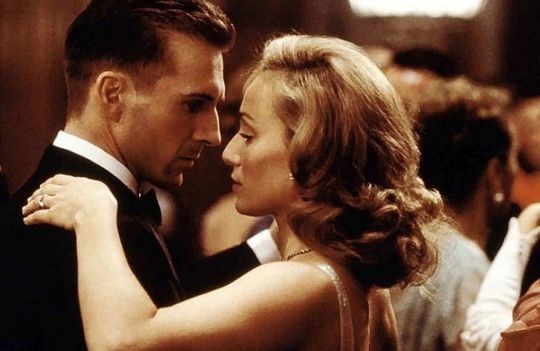
Ralph Fiennes and Kristin Scott Thomas in The English Patient (Anthony Minghella, 1996)
Cast: Ralph Fiennes, Juliette Binoche, Willem Dafoe, Kristin Scott Thomas, Naveen Andrews, Colin Firth, Julian Wadham, Jürgen Prochnow, Kevin Whately, Clive Merrison, NIno Castelnuovo. Screenplay: Anthony Minghella, based on a novel by Michael Ondaatje. Cinematography: John Seale. Production design: Stuart Craig. Film editing: Walter Murch. Music: Gabriel Yared.
The "prestige motion picture" is a familiar genre: It's typically a movie derived from a distinguished literary source or a biopic about a distinguished historic figure, with a cast full of major actors, but designed not so much to advance the art of film as to attract critical raves and awards -- particularly Oscars. There are plenty of examples among the best-picture Oscar winners: A Man for All Seasons (Fred Zinnemann, 1966), Chariots of Fire (Hugh Hudson, 1981), Gandhi (Richard Attenborough, 1982), Amadeus (Milos Forman, 1984), Out of Africa (Sydney Pollack, 1985), and The Last Emperor (Bernardo Bertolucci, 1987). (The 1980s seemed to be particularly dominated by prestige-seekers.) The trouble is that once the initial attraction of these films has faded, few people seem to remember them fondly or want to watch them again. I'd rather watch The Battle of Algiers (Gillo Pontecorvo, 1966) today than sit through A Man for All Seasons, and I would say the same for Atlantic City (Louis Malle, 1981), Blade Runner (Ridley Scott, 1982), Starman (John Carpenter, 1984), Prizzi's Honor (John Huston, 1985), and Moonstruck (Norman Jewison, 1987) when put in competition with the prestige best-picture winners of their respective years. So I watched The English Patient last night to test my theory that prestige movies don't hold up over time. It fits the category precisely: It's based on a Booker Prize-winning novel by Michael Ondaatje; it has a distinguished cast, three of whom were nominated for acting Oscars, including Juliette Binoche, who won; it earned raves from The New Yorker, the New York Times, and Roger Ebert; it raked in 12 Oscar nominations and won nine of them -- picture, supporting actress, director Anthony Minghella, cinematographer John Seale, art direction, costumes, sound, film editor Walter Murch (who also shared in the Oscar for sound), and composer Gabriel Yared. And sure enough, there are films from 1996 that I'd rather watch again than The English Patient, including Fargo (Joel Coen and Ethan Coen), Lone Star (John Sayles), and Trainspotting (Danny Boyle). But I also have to say that of all the "prestige" best picture winners, The English Patient makes the best case for the genre. It's a good movie, with a mostly well-crafted screenplay by Minghella from a book many thought unfilmable, though it still tries to carry over too much from the novel, such as the character of David Caravaggio (Willem Dafoe), whose function in the film, to provoke Almásy (Ralph Fiennes) into uncovering his story, could have been served equally well by Hana (Binoche). But the performances still seem fresh and committed. Binoche, though designated a supporting actress, carries the film by turning Hana into a kind of central consciousness. I was surprised at how much heat is generated by Fiennes and Kristin Scott Thomas as Katharine, considering that they are both usually rather icy performers. There are some beautifully staged scenes, like the one in which Kip (Naveen Andrews) "flies" Hana so she can view the frescoes high in a church. And Murch's sound editing gives the film a marvelous sonic texture, starting with the mysterious clinking sounds at the film's beginning, which are then revealed to be the bottles carried by an Arab vendor of potions. Murch's ear and Seale's eye make the film an enduring audiovisual treat.
3 notes
·
View notes